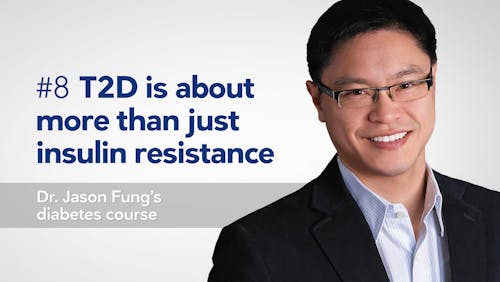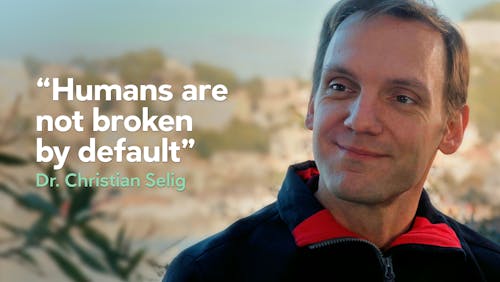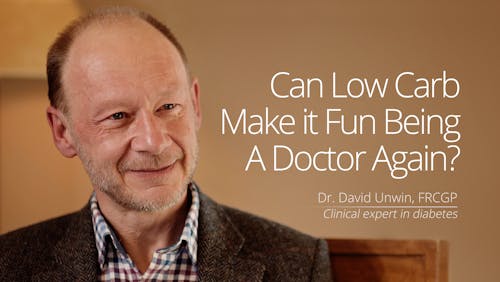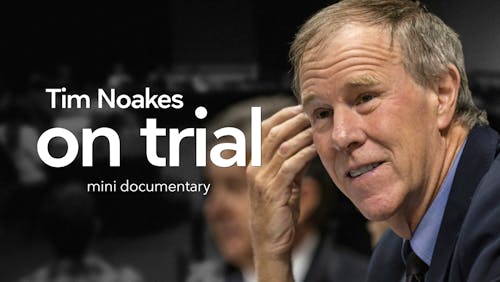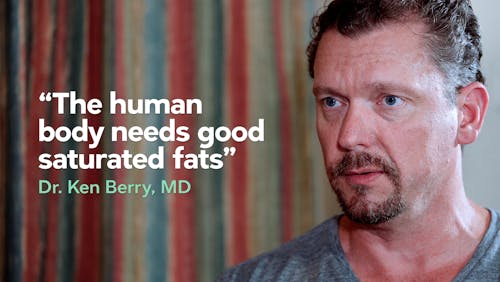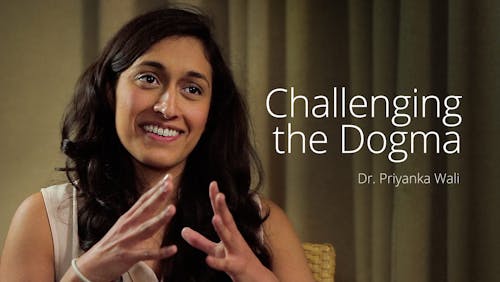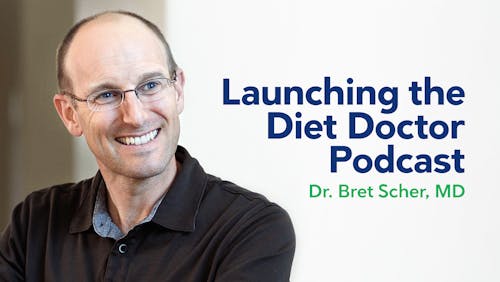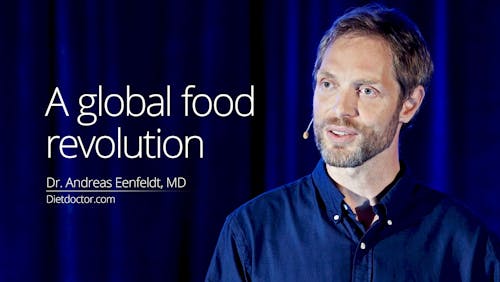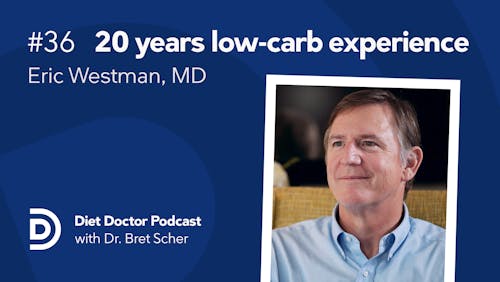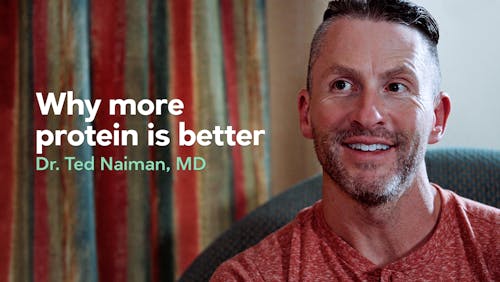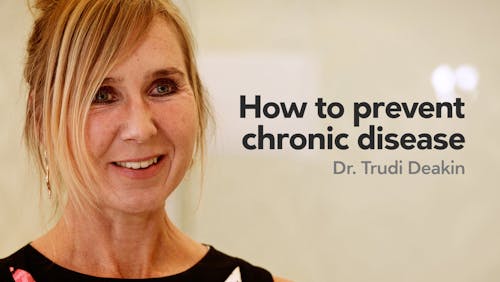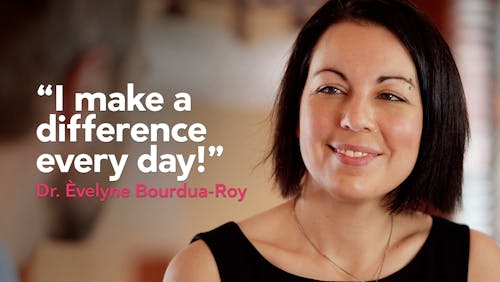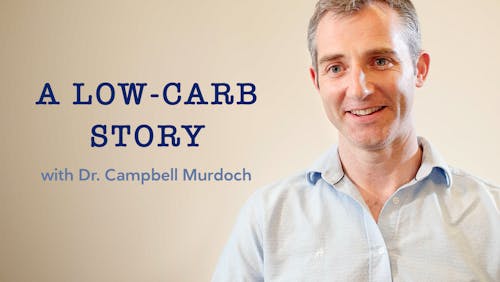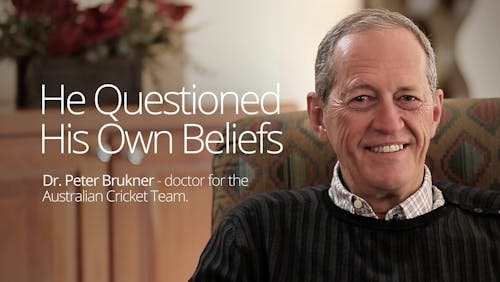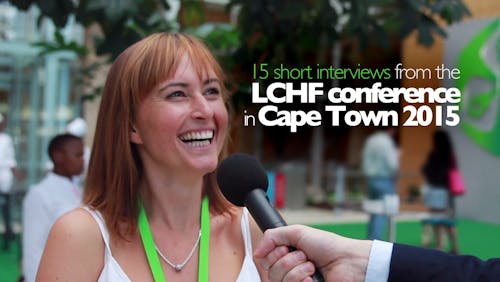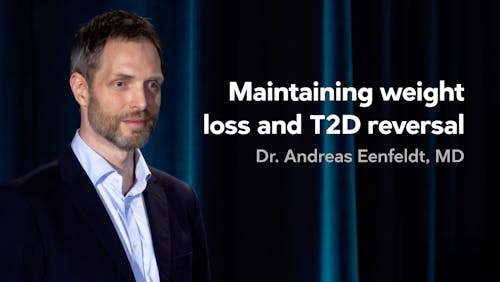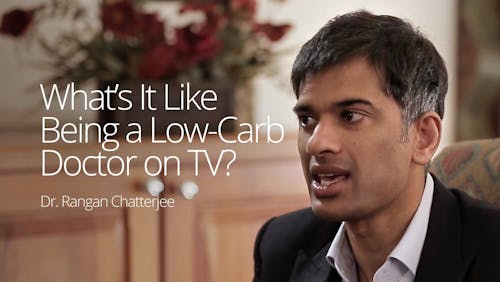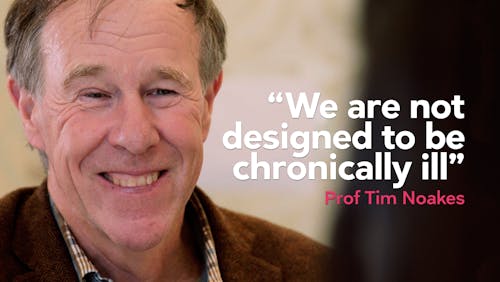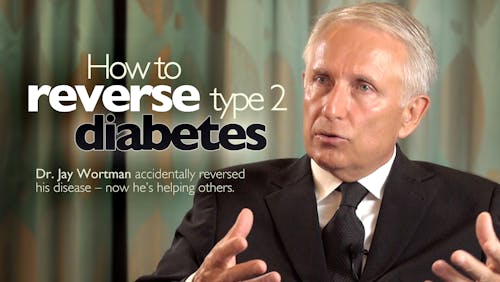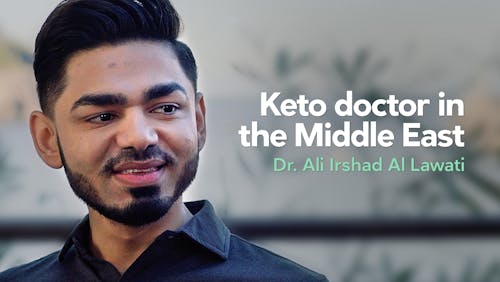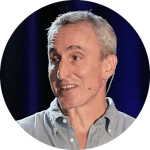The very first episode of the Diet Doctor Podcast: Gary Taubes
Over the last two decades, Taubes has repeatedly put his tenacious, meticulous research and persuasive writing skills towards debunking the bad science and prevailing dogmas in nutrition. Possibly nobody has been more influential than Taubes in the low-carb world.
However, it has been a bumpy road, with both ups and downs, not least when it comes to Taubes’ attempt to revolutionize the nutrition world with the non-profit NuSI. Like any massive undertaking changing the nutrition world is a long process, requiring a lot of persistence – and Taubes has a lot of that.
Listen and enjoy the very first episode of our podcast above.
iTunes
You can listen to episode 1 via the embedded PodBean (audio only) or YouTube (audio and video) players above. Our podcast will be available on iTunes and other podcast services too, soon. We’re still waiting for it to be approved.
Table of contents
0:02 Introduction to the Diet Doctor podcast
1:45 Welcome, Gary Taubes
3:18 How did you find low carb?
6:35 Garys thoughts on good and bad science
15:50 Reactions on Gary’s take on nutritional science
21:00 Challenges with doing nutritional studies
25:57 The creation of NuSI (Nutrition Science Initiative)
31:50 Reflections of NuSI’s first study
41:00 Studies versus real life
47:06 Gary’s view on calories
50:40 What causes the obesity epidemic?
55:30 Final words
Transcript
Dr. Bret Scher: Welcome to the DietDoctor podcast. I’m your host Dr. Bret Scher and today it’s my pleasure to be joined by Gary Taubes.
Gary is one of the most influential people in the world of nutritional science and basically turning that science upside down on its head with his publications of “Good Calories, Bad Calories”, “Why We Get Fat?” and “A Case Against Sugar”. I find it hard to find anybody who’s done as much as Gary has to try and bring truth and scientific truth into this world of nutritional science.
But as you’re going to hear in our discussion today that’s not an easy job. So we started off doing physics research and getting into science that way and he has evolved into now being so deep in nutritional research and with creating this amazing company NuSI to try and find if he can get a single explanation for why we get fat.
And as you’re going to hear, it’s been a bumpy road but he’s not giving up. You got to give Gary that he’s got a lot of resolve and he’s going to keep forging ahead until he finds his answer. I think you’re going to hear a lot about science in here, but you’re also going to walk away with some good tidbits on what you can walk away with now about helping your health.
And that’s a big part of what we’re trying to do here at the DietDoctor podcast to explain the science and also to give you the practical tips that you need. So if you want to know more, if you want to hear more about the episode you can go to DietDoctor.com, you can learn more about me at lowcarbcardiologist.com and don’t forget if you like this episode, please leave us a review and don’t forget to click “subscribe” so you won’t miss any of our future episodes.
So stay tuned for my interview with Gary Taubes. Gary Taubes, welcome to the DietDoctor podcast. It’s a pleasure to have you today.
Gary Taubes: It’s a pleasure to be here.
Bret: I was so excited when you agreed to be a guest on this podcast because it is hard to overstate your impact on the whole low-carb world and that was really brought out even more to my attention as we were emailing back and forth. And Andreas, the DietDoctor himself, said “You are the reason I got started doing this in the first place.” I mean if that doesn’t say your influence on this field, I don’t know what does. And when you started on this journey so many years ago did you have any concept of what you would create and the people you would impact?
Gary: No, clearly no, this was all… I wasn’t just clueless… You know, I was just a journalist following a story, so it’s really, it’s a very cordial say. But I was making it up as I went along. Actually I think we’re all still making it up as we go along because there’s never really been a phenomenon like this.
Bret: Yeah, it’s a great point and your path to get here was so interesting because you certainly didn’t start in nutrition research. It doesn’t seem like your goal was to get involved in nutrition and how that impacts health but rather you started off in physics and in talking about science and that connects so well to this because we’re still talking about science, whether it’s good calories versus bad calories or good science versus bad science. So tell us a little bit about your journey how you went from starting in physics and how you found your way over to the nutrition world.
Gary: Okay, I’m going to also give you a different interesting revelation on this because people had discovered this before, but they were invariably physicians and they were overweight and they were trying to figure out how to solve their weight problem. And when they did they decided they’d try to solve their patient’s weight problems and when it worked, they wrote diet books and then they became sort of tired as diet book doctors and the idea was a diet book doctor is kind of like a snake oil salesman. And it was just a personal observation.
I was probably the first one who got into it because I was an investigative journalist. I mean as you pointed out I had started in science, I had written my first two books about first physicist who discovered nonexistent elementary particles and then this ColdFusion phenomenon where chemist discovered a nonexistent physical phenomenon and I was obsessed with how hard it is to do science right.
And that was what it really interested me. I had started my career in physics and investigative reporting is similar to science and you’re trying to realize something about the universe than nobody else knows and understands. So my physics friends had suggested if I was interested in the subject I should look at the public health science in general, because it was based on some pretty shoddy research and I stumbled into the diet field, it was pure serendipity.
I needed a paycheck one day and my editor at Science asked me if I wanted to do a story on the first Dash study. Dash is a dietary approach to stop hypertension. So in the course of doing that story I realized that there was a very vitriolic controversy over whether salt causes high blood pressure.
And in the course of interviewing people I realized that one of the worst scientists I’ve ever interviewed took credit not just for getting Americans to avoid salt, but for getting us on the low-fat diet we’d all been eating through the 90s and the learning experience from physics and ColdFusion and all my other research was that bad scientists never got the right answer.
So when I realized that this guy was involved in the dietary fat concept, I didn’t think of it as a controversy. I was just doing what everyone else was doing in the 90s which was eating a low-fat diet. And I joked that over the course of the 90s I’d probably boiled 10,000 eggs and threw out 10,000 yolks. Because that’s what we did and it was…
I mean it was crazy and then you start researching this question about whether dietary fat causes heart disease and it turns out to have been an interesting hypothesis, so went nowhere, and that we embraced anyway because so many people became intellectually and cognitively committed to it that they couldn’t believe whatever their experiments did not confirm that they just assumed they did the experiments wrong.
Bret: Right, that’s such an important point that you talk about bad scientists and bad science and one of the things about your back story that I think is so interesting when you started you were actually working with like a Nobel prize-winning scientist and that was part of your foray into bad science which makes me think are there bad scientists or do people just get so ingrained and so entrapped in their own science that they really can’t see outside of that and it leads them to fall into traps like the trap of thinking salt causes hypertension which causes cardiovascular disease or that fat causes cardiovascular disease that people are just too close to it, they’re too ingrained in and it takes someone like you, someone who’s an “outsider” to come in and pull back the wool over our eyes and show us the truth?
Gary: Well, that’s how traditionally major advances in science are made by people who come from outside the field. Because when you’re inside the field you learn to think the way everyone else thinks and I’ve been fascinated by the whole groupthink phenomenon which I think explains to a lot of us the reason you and I are talking today and the reason we think we like each other because we think the same way. So I assume you’re a really smart guy because you think like I do.
Bret: Of course.
Gary: And people that don’t think like I do I assume are not smart and that’s just the way humans work. So we surround ourselves, this conference where we’re during this meeting is a whole mass of people who all think alike. And we all think we’re smart because we all agree with each other. And if it turns out we’re wrong, we’ll never be able to admit it.
Because it’s all these people, this is where we get our feedback from, this is where we get our validation from, these are the people who… You said what an amazing part I played in this. And I’m thinking, yeah, as long as I’m right… I used to have a friend in Hollywood, a screenwriter, who used to joke that if I’m wrong I’m going to have to go and live in Argentina with all the other people who killed hundreds of thousands you know.
Bret: Witness protection program for Gary Taubes.
Gary: It’s how humans function. The guy I wrote my first book about… I lived at CERN, the big European physics lab outside of Geneva and I thought it was there to cover great breakthrough. There’s a few things we all do. I mean first of all this guy suffered one of the flaw… He was an Italian physicist who taught at Harvard and commuted between Harvard and Geneva in Italy and he won the Nobel Prize when I was there for work that he had done earlier. Fatal flaw of many very, very, very smart people is because they are used to being the smartest person in the room and they’re very, very, very smart, they often think they’re smarter than they are. And so they forget that the first principle of science is that you must not fool yourself and you are the easiest person to fool. And then once you begin this process of fooling yourself, so you see something in the data that you think is a discovery about the laws of the universe, whether it’s you know an elementary particle or the idea that saturated fat causes heart disease. As soon as you go public with that it’s like you’re committing.
So what you’re supposed to do in science is test your hypotheses, rigorously test your hypothesis. Basically spend however long it takes to come up with every possible explanation for what you saw… to explain it away something mundane and boring and not interesting and a mistake, because why would the universe be so kind as to allow you to discover something that no one else has ever seen before? And so if you think you have, you’re almost assuredly wrong and you just find out how you’re wrong and you should ask every smart person you know to explain why you’re wrong, because clearly you’re wrong. That’s kind of the way you should approach it.
Bret: If you were to grade contemporary science on how well they do that, what kind of grade would you give them?
Gary: D+.
Bret: D+? You’ve been generous.
Gary: We’ve got into the situation where in order to get funding you have to tell people why you’re right. And you have to find new things and you have to publish new papers all the time. That’s how you get career advancement, that’s how you get promoted, that’s how you get funding, so that’s how you get published. We joke that apparently no one’s ever published a negative result, nobody has ever disapproved the hypothesis, certainly not their own and yet that’s what you’re supposed to do in science.
Bret: That’s what science should do.
Gary: And this guy once you go public, once you take that first step… so in physics the way I was taught is that after months or years of trying to prove you’re wrong you finally say, “I can’t, I can’t do it… I can’t figure out how to explain this other than a great discovery.” So then you write a paper that says, “Discovery of fundamental particle X?”
And then you write the papers… like “Clearly I screwed up here”. And clearly this is some mundane thing, like some problem with my equipment or some mundane phenomenon that’s been reported 50 times before and I’m just not aware of and please explain how, but I haven’t figured it out so I’m going to kind of present this paper…
So you’re kind of backing into it. And then when people say, “Well, you forgot when you calibrated your equipment “by plugging it into that wall socket, “you thought the voltage was 110 V and it was 180 V, so you’re getting sparks and that’s why you…”
Bret: So it’s the mindset with which you approach the data and that mindset is not the mindset we have today… Today’s mindset is “Here is what I’ve proven. Aren’t I great? Look at these wonderful results.”
Gary: And I hear this… I mean, this is just how we work. I’ve almost decided that… I’m tempted to start making my own internal assessments of people’s intelligence by how many question marks they use when they speak in the emails, because if they’re not asking questions but just giving declarative statements they don’t understand how easy it is to fool yourself, that they are likely doing. And they should be approaching life and their science differently. But anyway that’s what I think about.
All of my books I think of as ultimately about this question of good science and bad science and how to present hypotheses. And the problem with these public-health hypotheses are dietary fats cause heart disease and, you know, 500,000 Americans are dying every year from heart disease. You want an answer, you want to be able to prevent this.
So you feel this pressure to come up with an answer to suddenly shortcut the scientific process and jump to conclusions. Because if you’re right you’re going to save hundreds of thousands of lives. And if you’re wrong, how much damage can you do? Because you never know how much damage you could do.
Bret: And one of the things about science is how it reacts to say “outsiders” and how it reacts to contrarian information? And you are pretty much on the forefront of that. So when you first came out with, “What If It’s All Been A Big Fat Lie?”, that was 2004…
Gary: 2002, July 7.
Bret: All right, 2002.
Gary: I remember.
Bret: There was quite a storm of reactions to that and I mean you can look at a couple of different ways. You could say, “Well, how are scientists supposed to react to opinions or hypotheses that are contrary to their own?” And what would you answer to that question? How are they supposed to react?
Gary: Extreme skepticism. I mean, again this is the problem… So I think of it as… Even in a situation where there’s an infinite number of wrong answers and only a few right ones, so the likelihood of getting the right answer is always tiny and I’d like to think…
Remember, my second book was on this phenomena cold fusion where this chemist in Utah and this electro chemist in Britain thought they had discovered a new kind of nuclear fusion and the fact that this could be limitless energy… And if he was right, it meant that everything we know about physics, basically nuclear physics had to be rewritten. And you trust the establishment. I mean, these guys are smart guys, they know what they’re doing and the difference is nuclear physics is exceedingly well tested.
I mean, you come up with theories and hypotheses and equations and then you could build bombs and reactors and for the most part they work. So we know our ideas are correct. But you trust the establishment and the establishment… And we said most breakthroughs come from outsiders.
Those outsiders are a tiny percent of the outsiders who are thinking about the subject. So when I used to write for Discovery magazine in the 80s and every time I wrote a story about physics I would get these letters written in crayon. 10 years later I realized they were written in crayon because they were written by prisoners, convicts, who aren’t allowed to have sharp object.
And they would explain they had their theories of the universe. You know, I have a grand unified theory and then they work it out. And fro, that one of them was right. But life is short and I not have time to read. The chances are they are wrong.
Bret: I guess that the point where I was going with this though was to say, “I think if you’re scientist and someone wants to challenge your theory, “you should greet that challenge and say okay if it’s science is the goal, let’s see if this is right or not.” And we had that sort of the opposite of the reaction that you got. Instead it seems like you got a very personal and defensive reaction to your hypothesis and your publication.
Gary: The very first thing, yeah, absolutely… When I wrote, “What If It’s All Been A Big Fat Lie?” I knew it was going to be controversial. I was kind of stunned by the response, but again if I was right, every journalist… not just every scientist covering this, but every journalist covering this field was wrong. They’d missed a huge story, including some of my friends…
Bret: So you got pushed back within the journalistic community as well.
Gary Taubes: One of my close friends in journalism, who used to think of me as one of three best science journalists in the business accused me of having a brain transplant, or basically writing the article to get a big book deal. Because if I was right, she was wrong. I was right Gina Kolata at the New York Times was wrong.
If I was right, Sally… I forget her name of the Washington Post was wrong. All these people, Jane Brody was wrong… all these people who had been covering nutrition and they’re confluent with obesity and chronic disease, were wrong. So it was not just the scientists. It was the gatekeepers, who were the journalists. And so a lot of the pushback came from actually my journalist friend, a scientist, who just said… Who cares?
Bret: Well, the scientists tried to discredit you and say, ‘You’re a journalist. What do you know about science?” And that part I find so interesting because the scientists sort of knew their study.
But you as a journalist, you came in with the perspective of history and you came in with the perspective of breath to look at the whole field, which scientist don’t do and nor do they have the time or the training to do, so I find it interesting when they say, “You’re a journalist, you don’t have a place here.” But who’s job is that?
Gary: Funny, there isn’t… There’s an infinite science journalism. And in medicine there’s very little role for journalism. So in politics and government and any other field… in sports, we see the role of the journalist.
Bret: It’s very clear.
Gary: It’s the fifth estate to the… part of the system of checks and balances. But in medicine that doesn’t really exist. Science Magazine was actually one of the few places where I could work that would allow this kind of investigative reporting. The New England Journal of Medicine doesn’t have reporters who write for JAMA.
Actually used to have, maybe they still do, but there was very little role for journalists to come in and there is more of a wall where there’s this idea, you know, scientific medical expertise is different. You got to get degrees, right? MDs and PhDs. It’s not like government where you are going after people who are at your same educational level.
And then people don’t like to hear from outsiders. But even then, I mean, if Linus Pauling with vitamin C, I mean he was the ultimate insider and people still don’t listen to him and we still don’t know if he was right or not. I suspect not, but that’s not a subject I know well. But the point is, remember, I have written about ColdFusion and after ColdFusion I did the first big piece I did on the public health on the question whether electromagnetic fields cause cancer and you want the medical scientific community to have a very good immune system, because remember once a quack-ish idea gets into the system and infects the way people think, it doesn’t go away, it stays there forever.
And you never know… It’s like herpes or something. You never know how it’s going to come out and manifest and influence science later. And so this process when you talk about science is laying bricks on, you know, a wall you want that wall to be as solid as humanly possible. If there’s a anywhere… I’m shifting metaphors wildly but… Any place in the wall where you’ve got like a half a dozen of shoddy bricks, the whole wall could come down.
So you want the medical community and the scientific community to be very vigorous in defending themselves against quackery. And that’s why you don’t want scientist going public with premature results because if somebody should forget that this is basically somebody’s speculation and assume it’s a fact and then it gets built into the scientific edifice.
Other people are going to build on top of it and then you are going to get it, it’s going to infect everything and that’s what happened with the dietary fat science, it’s what happened with the obesity. They just embraced these assumptions, never really confirmed them, allowed them to become facts and they’ve infected everything that comes after.
But I don’t mind the way I was treated and I don’t mind the way I am still treated because that’s their job. If I want to take this on, my job is to… the slings and arrows, you know, and to just keep doing that.
And my personal goal is not to become better and not to be one of these people who, you know, is eaten away by the fact that people want to ignore people… like you want them to ignore people like me. But an ideal where you want them to not have screwed up, so want them to believe, to begin with, that they need people like me.
Bret: And that’s exactly it. I mean, the scientist would say you’re an outsider, you don’t belong here, but it’s so obvious how much we needed someone like you to come along, because there aren’t systems of checks and balances and for the government to lay down nutritional guidelines that you can say are complicit in obesity and diabetes epidemic with no checks and balances, that’s exactly why we need so-called outsiders like you to come in and turn things upside down.
And what it clearly has shown is the difficulty in performing nutritional studies. I mean I think there’s no question, it’s a difficult field to begin with and so to think that we can have evidence that’s strong enough to make governmental guideline for how everybody should eat is at fault from the beginning.
Gary: Yeah, this is a fascinating conundrum. So I remember I wrote about this, I think it was the second chapter of “Good Calories, Bad Calories ” and when I wrote about this at the end of it I sent it off to my editor. I said, “This is either the best thing anyone’s ever written on the subject or it’s just crazy rambling.” I never know what the difference… Like my talk today is either going to be very revelatory or crazy rambling.
Bret: In retrospect how would you say you did?
Gary: I think it was pretty good. But on the one hand you’ve got like this physicians perspective. You’ve got people dying out there. I often think of it as a Jurassic Park concept, because if you remember the first Jurassic Park movie, there were about six scenes in the movie where somebody screams, “People are dying out there.” We have to act. They are dropping dead as we speak.
As you and I have had this conversation several Americans have dropped dead of heart attacks and we didn’t act and we are complicit. So we have to act and we don’t have time. One of things I heard while reading the journalism from the year 1960… We don’t have time to dot the i’s and cross the t’s. The other thing is if you don’t have time, this scientific perspective… If you haven’t dotted the i’s and crossed the t’s, you don’t know if you are right.
Bret: Right.
Gary: It’s that simple. You don’t know if you’re right. So these two philosophies are at war and they’re still at war except what happened in this particular field of studies is you point that they are very hard to do because your studies in chronic diseases are dumb, manifest themselves over decades slowly.
So it’s not enough that you could do a study for six months, you could do it over a rat or mouse, you know, equivalent of decades, but you don’t really know if what you’re seeing… like if you see changes happen in six months maybe the body you know compensates and it doesn’t manifest as chronic disease 20 or 30 years later.
And maybe the ones that does manifest you don’t see. Some of the stuff I left out of “Good Calories, Bad Calories” with studies done in weaning rodents, pops on their mother’s milk and you change their mother’s milk… The carbohydrate content of their mother’s milk while they are weaning they called “pop in a cup” experiment.
And in middle age they manifest metabolic syndrome. So they appear to be completely normal for the first year of their life, which becomes middle-age for a mouse or rat and then they manifest metabolic syndrome. And if they are females they pass it on to their infants when they get pregnant. And you wouldn’t see it for the first year.
So this is the problem, they just have no idea. To do these studies right, it requires 50,000, 100,000 people, followed for 10 years, that’s a billion-dollar study and it’s so hard to get free living people to follow your diets that they might not even stick on the diet or the control diet people might…
I mean there are all kinds of ways they can get the wrong answer and they argued about this and discussed it in the 60s. So they decided not to do the science. And then what they do is instead of acknowledging that they don’t really know, they say, “Look, we’re guessing.” This is what they should’ve said, “We’re guessing.”
Bret: And the public wouldn’t have responded well to that. They need confidence.
Gary: And if you say, “We’re guessing, but we don’t think you should ever eat butter or hamburgers again”, people are going to say, “They are guessing.” So then you’re not going to get enough change, so you have to be forceful.
Bret: But in essence they were guessing.
Gary: They were guessing, so what they did is they also lowered their standards and this is my condemnation of the field in general. Instead of saying, “If we don’t do these studies we don’t know the truth”, they said, “We can know the truth without doing those studies, we can triangulate the truth, we could guess, it’s too important not to.”
And then they taught that to their students and you have this whole culture of science that’s now kind of a pseudoscience. Because they don’t realize that they’re the easiest people to fool and they must not fool themselves.
They don’t realize that they are likely to be fooling themselves and they’re not worried about, they’re not anxious or not stand up and I am wondering if they’ve killed hundreds of thousands of people, they just they just convince themselves they were right by a much lower standard than was necessary and we’re living with that.
Bret: And what will take you to undo that is good science to try and counteract that and that’s where we can sort of fast-forward in your career to the creation of NuSI. And I want to get into this a little bit because it’s sort of a dream team of people wanting to create good science to finally say this is what data shows and this is what science shows. And backed by good funding, with high-profile people… How could it not succeed?
And I think one thing if I can speak for you that you’ve learned is this is hard to do, it’s probably much harder than you would have thought. So I want to get your opinion on that, on the sort of your retro-scope on how things have gone so far and what you’ve learned from it. And we’ll talk a little bit about the specifics of the studies.
Gary: Okay, so when we started NuSI, we’ve been, me and then Peter Attia, we were clueless. My thinking was… People had always gone on these diets. So here’s a situation and the American Heart Association staked out this position that this is quackery, bizarre concepts of nutrition, doctors, cardiologists in particular are taught that this will kill people, it’s high saturated fat, arteries are going to clog in the blink of an eye and they’re going to kill… over… dead…
And yet even researchers knew, when I did my first research for my first article I had some of the leading researchers in the field saying, “Of course you can. “If you want to lose weight easily, go on Atkins, “but I would never tell my patients to do it because I’m going to kill them. I can’t risk it.” And the Heart Associations are telling them, so the organizations and the guidelines are all pushing low-fat diets and ultimately the organizations, institutions and guidelines are responding to what the scientists in quotation marks… to these words that scientists, to air quote, are telling them.
So and once you start seeing all the things that they missed… so the primary thing, I mean not just the evidence, their failure to confirm this idea that dietary fat diet caused heart disease, but this sort of nonsensical nature of this obesity theory that is caused by taking in more energy than we expand. My favorite physicist Wolfgang Pauli would’ve said that’s not even wrong. That’s how bad it is and yet we all believe this, I believe that everyone believes it.
It’s like if someone is getting fatter, they have to take in more energy than they expand. I mean the fact that they’re getting heavier tells you they’re taking in more energy than they expend. The two things are synonymous in effect, they are tautologies, doesn’t tell you why they’re getting heavier any way more than a growing child that takes in more than they expense. It tells you why they’re growing, right? So it sort of… that idea had to go away to make progress.
Bret: So the calories in calories, calories out.
Gary: The calories in, calories out model of obesity has to go away for this field. It’s the wrong paradigm, it’s a wrong way to think about it. This is a hormonal regulatory disorder.
Bret: So the counterargument is that carbohydrate insulin model word is more about the carbohydrates and the hormone specifically insulin and how that affects–
Gary: I’d like to think the carbohydrate insulin model is a subset of… When we talk about this is a hormonal regulatory defect and then the tie to diet becomes carbohydrates through insulin, so the dietary trigger and how to think about preventing it becomes carbohydrates and insulin and other hormones are involved, glucagon’s probably involved, the growth hormone…
But if you think about it is a calorie problem you will never make progress. That was my conclusion from my book. I never thought we needed experiments to clarify that, but clearly I’m not going to convince all these researchers who decided I’m a journalist, I don’t know what I’m talking about, so…
And I still don’t think. I think this is just pure logic. I mean it’s like look at the history, understand what happened and understand that the calorie model doesn’t tell you anything, it’s a failure as a hypothesis, can’t tell you anything about fattening other than this idea that if you got fat you ate too much.
Bret: But you can certainly see why it was promoted by Coca-Cola and SnackWell’s and the other companies.
Gary: But the scientists believe that, that’s the thing. So maybe we can convince them, this is my thinking. If we could do an experiment where you fix calories and radically change the macronutrient composition, I kind of knew what experiment had to be done…
I was giving lectures where I was proposing this experiment to researchers and then when Peter Attia came along as somebody who had basically experienced the same phenomenon in his own life like if you want to understand why it’s not about calories, you just have to be somebody who’s been getting fatter for years, no matter how much you exercise, in Peter’s case three hours a day, and, you know, counting your calories and being hungry all the time and then you shift what you eat and the weight goes away…
And it’s like, “It’s not about calories!” I mean if you’re willing to experiment, you can have this phenomena yourself, but even if you did, so patients would go on these diets, they’d lose weight, they’d go to their doctor and they’d say, “Look, I lost 60 pounds” and the doctor would say, “How did you do it?” and they’d say, “Atkins” and the doctor would say, “Oh my God you’re killing yourself!”
I get emails still about, “I lost 60 pounds. 15 years ago my doctor talked me out of the diet.” So we needed to approach the medical community, we needed to somehow shift the science so the organizations would stop saying what they’re saying so that the doctors would stop saying what they’re saying so then the people could at least feel free to eat in the way that seemed to put their obesity into remission.
Bret: So the first study that you guys instituted basically, the energy balance study, was measuring people’s resting energy expenditure and having them change their diet from sort of a normal diet to a low-carb diet seeing how the energy expenditure changes. And this is one of the interesting things about science. Is that, you know, if you google the study and reviews of the study, most would say it was a failure.
Certainly the primary investigator said it was a failure. But actually energy expenditure did change, the energy expenditure went up on the low-carb diet, yet the interpretation was that it disapproved the hypothesis. And it seems like a disconnect there, doesn’t it?
Gary: Yeah this is where I get mystified and they would just say that I can’t accept reality. So this study, the idea was pretty simple – you take subjects… so what you have to do in these studies, and if you don’t do this, you don’t get the right…
So the key thing to remember in all discussions about science is that the answers you get depend on the questions you ask and in this case the questions are asked in an experiment, so the experimental conditions pose a question so you have to create the experimental conditions in such a way that you’re asking the right question. So we’re saying that the fat accumulation is dependent ultimately on the macronutrient content of the diet, not the caloric content.
So the conventional thinking says obesity is caused by taking more calories than you expend, therefore the only way that foods influences your weight is through their caloric content and then secondarily through how much of the calories in the food ultimately get absorbed and how much get expended in the metabolism and then excreted.
So this conventional wisdom that a calorie is a calorie for most part, so if you fix protein and you create a condition where let’s say I realize that you need 3000 cal a day to maintain your weight on a standard American diet which may be 50% carbs and a 35% fat and 15% protein. And then I shifted, I took ketogenic diet, and now I make it 5% carbs and 80% fat and 15% protein, the conventional wisdom says for the most part a calorie is a calorie, it doesn’t matter, your weight is going to stay the same.
And you’re going to spend the same amount of energy and this alternative hypothesis, a subset to carbohydrate insulin model, says if we drop carbohydrates to almost nothing and replace it with fat, we’re going to drop insulin and if we drop insulin, you’re going to mobilize fat from your fat tissue and you’re going to oxidize that fat. There’s no law of nature that says that you can’t burn more calories than you’re eating so your energy expenditure is now going to go up and we can measure carefully that energy expenditure.
That was the idea and we recruited thoughtful researchers from the community who we thought could do that experiment and would pay attention to the data. And particularly individuals who in the course of my interviews with them for my book I thought had run up against the cognitive dissonance of their belief system. So for instance Eric Ravussin was a researcher, still is, at the Pennington Biomedical Research Center, had done research with the Pima Indians, this Native American tribe in… Arizona? I’m blanking… too many concussions as a youth…
Bret: Too much boxing.
Gary: And Pima, he said these people they were getting obese and diabetic and no population was more aware of the price of being diabetic, like their kids were watching their parents getting their legs amputated in their 30s.
If any population knew enough to avoid obesity, it was his population and yet it was happening to them anyway so he would say things like that and I thought, “This man is struggling with cognitive dissonance. And so if he sees a way out, if he does the right experiment, sees the data, understands that he’s been laboring under literally the wrong paradigm, they will shift…”
Rudy Leibel at Columbia University was another one. A very thoughtful wonderful researcher who I was convincing… Then we brought in some other people who were involved, including this young researcher at NIH, Kevin Hall and another colleague of Eric’s who had moved to different laboratory, Steve Smith and the idea was to get them to design this experiment with us and then they would do the experiment and see…
Bret: But open-minded talented researchers with a mission that is laid out by you and Peter in this in this type of environment and still the study couldn’t be as clear as you would hope it to be.
Gary: The first study we did was a pilot study. So this is where I get mystified. We knew it could… it was not a randomized controlled trial. So you take these 17 subjects, you lock them away where you could figure out how much energy they need to maintain their weight by measuring their energy expenditure.
If they’re expending 2,700 cal a day, you know you got to feed them 2700 cal, they got to at least absorb 2700 cal from food you feed them and then you could shift them from a standard American diet to a ketogenic diet and see this effect in energy expenditure. Which should be easier to measure than an effect in weight. And they full scale study we knew it was going to cost around $20 million.
We didn’t trust and we didn’t want to spend 20 million going in an experiment that could go awry. So instead we got 5 million to do this pilot study, that among its many issues wouldn’t be randomized. So if you don’t randomize the subjects, that just means you literally can’t infer causality. There is no randomization, there’s no causality. Any scientific methodologist will tell you that.
You can’t trust your results, because you don’t know if what you saw happened because you shifted the diet or how much of what you saw happened because after four weeks on any diet locked away in a metabolic ward something else happens that could explain what you saw. And remember science is about making sure that what you say explains what you saw… it really was explained, but…
So anyway that was one of the many problems with the study and yet the researchers chose… And they measured energy expenditure in two different ways. One was in a metabolic chamber that is very accurate, but you’re locking these people away in a small room for two days and there’s a lot of evidence and when you do that, it does something to inhibit their energy expenditure, so that’s flawed.
And then they also measured it by something called doubly labeled water where you can measure their energy expenditure over two weeks. It isn’t as accurate but now at least they’re walking around the wards, You get an accurate… a measurement of their energy expenditure without whatever this possible inhibitory effect of the chamber. We have papers written by these researchers where they say that the doubly labeled water is the gold standard, their paper is written by the same researchers when they say the metabolic chamber is…
So the metabolic chamber, they see a little bit of an increase in energy expended and by a little bit I mean they see about 60 to 100 cal a day to be more than enough by a factor of 10 to explain the obesity epidemic, but it seems to be going down at the end of the study. They don’t really see it, therefore they decide that it’s transient and it refutes the hypothesis.
And then by the doubly labeled water they see about three times that effect. And there are also things they don’t measure, things that are part of this energy balance. To us it was an interesting experiment.
Actually the reason we funded it was to see if the methodology worked and one of the decisions was that methodology did not work. So when we went around to design the follow-up study we had to do a different methodology that got around the problem with the pilot. There are just all kinds of problems.
Bret: So this whole discussion though just shows how complex this is and it makes it so challenging for the individual out there who’s trying to make decisions on what they’re going to eat today, what they’re going to eat tonight, what their lifestyle is going to be like. How do you decide when even the best intentioned and thoughtful scientists have problems coming up with conclusions?
Gary: They didn’t have any problems coming up with the conclusions. We had problems with the conclusions they came up with and then they said, “Of course we did because we’re biased” and we said, “Yeah, but you guys are…” And then there’s the whole concept though of a study looking at such a specific thing versus looking at results in free living populations.
Bret: And there’s one or the other. And as a cardiologist, as a clinician, I could argue that I don’t care what model works in science. I care what works for an individual patient and that also makes science a little bit challenging. Did you run into any feedback or pushback about that? That this is just too overly controlled, not real world and maybe not applicable to the person… ?
Gary: If we had seen what we wanted to see and we’d argue we did see what we expected to see and they just neglected the public to pay attention to that…. There’s a knee-jerk responses to all of this. So if we had seen what we expected to see, being a bigger effect, then they had published it, then people would respond, “Yeah, but this is an artificial metabolic ward” and then we would’ve said, “But that’s not where we’re doing the study”.
It was a scientific study, it wasn’t a public health study, it wasn’t a medical study, it was science. We’re using humans as our experimental animals because humans are the only ones we care about and we want to establish which one of these vitally important paradigms is correct.
Because if we’re right, you got the wrong paradigm, you got the wrong hypothesis, that’s why we have obesity and diabetes epidemics, that’s why everyone fails, vitally important. You can do these free living studies.
We are now doing a study to see which diet works better in a free living environment. Those have always been plagued by a failure of people that follow the diets which then leads to the medical community’s knee-jerk response. Nobody follows a diet. We know they don’t follow a diet, so who cares?
Bret: So what’s your follow-up study then? What would be the study that can help that person decide, “What lifestyle am I going to follow? What am I going to have for dinner today?”
Gary: Okay, so I do have a follow-up study that I’m hoping to raise money for. I’m not going to talk about it right now.
Bret: Oh, you’re killing me.
Gary: We’ll talk about it off the air. I mean people… If I can raise money for it… I mean it’s crazy, I was just talking to my new friends from WIRED magazine, which is a long story… And they kept saying, “Well clearly you are trying to keep NuSI alive for something “and there is a purpose to it and you’re doing all these things.
And then, what’s your logic?” And I said, “Look, ultimately I am a freelance journalist and a book author who is now trying to raise $3 million to $5 million for a clinical trial. Nobody’s ever done this before, I have no idea whether it’s possible. I am making this up as I go along.” Okay, there’s no book I can order on Amazon about how private individuals can raise $4 million or $5 million for clinical trials.
And we started NuSI, it was the same thing. I mean Peter and I… we joked… It was like the Hardy boys starting a not-for-profit. I mean Peter is an amazing guy, incredibly talented, and he made it, you know, kind of what it was, but we didn’t know what we were doing. And the foundation that was funding us, bless their heart, which gave us ultimately about $30 million to fund research and then funded another $12 million to a study that’s kind of the follow-up to this energy balance study.
I think when they started, they didn’t know what they were doing either. They were a new organization, we all had the best intentions and we were making it up as we went along. What do we think is the right thing to do at this moment? That said for your patient… this is how the world’s changed.
And I think this was vitally important when you talked about me not knowing what I got into. So when I started this business in 2001, started my research for the Times Magazine story, the conventional wisdom was that if you wanted to lose weight, you went on a low-fat calorie restricted diet. You could eat things like fruit smoothies.
Bret: Healthy fruit smoothies.
Gary: There was one point in my life when I wanted to open a jumbo juice franchise. I mean, because they are fat-free. Who cares if they are like 2000 cal, you know? It’s clearly what you do. Anyway, that was a conventional low-fat calorie restricted diet. And a low-carb diet will kill you. For a physician to prescribe it was equivalent to committing murder, it was quackery and people’s arteries were going to clog and…
And there have been a few patients who lost 50 pounds on it you got worried and tried to talk them out of it… And Dean Ornish was saying things like, “Yeah, you can lose weight on the Atkins diet, but you can lose weight on Fen/Phen too…”, which was this notoriously fatal diet drug “…or by smoking cigarettes.”
Bret: Cocaine binges, it’s been related to.
Gary: That was a metaphor. I mean it’s funny that you still see that recently Mark Bittman and David Katz in New York magazine compared it to cholera. I’m going to talk about this in my… I was provoked… It actually motivated me to use an emoji in my lecture today.
Bret: I’ll look forward to seeing that.
Gary: But that was the conventional wisdom. Now the arguments among the blogosphere is a low-fat diet as good as a low-carb diet? And stop telling us, “Everyone has to do low-carb.” The conventional wisdom at least in the more educated areas of the world, higher socioeconomic… the world where I live.
I don’t know if this is true everywhere, but the world I live now is that carbohydrates are fattening. And it seems like everybody in Silicon Valley and Los Angeles who wasn’t micro dosing LSD, these days is doing a ketogenic diet or a vegan diet. So now you can tell your patients, “Do this diet and try it and see if it works.”
And you know what lipid tests to do and what panels to do when you’re pretty confident that if they eat this way their blood pressure will go down, their HDL will go up and their triglycerides will go down and their waist circumference will get smaller and their blood sugar will get under control.
And if they’re diabetic you’re pretty confident that you could get them off most or all of their diabetes medications and diabetes and obesity can in fact go into remission. And you’re not going to kill them and they can be pretty confident.
Bret: So now you are speaking my language. The data that applies right to that patient.
Gary: So you don’t need a clinical trial anymore, that’s the kicker. And do I need to know if calories in, calories out, or carbohydrate insulin model, hormonal model…?
Bret: Do I need to know which one is right, or do I need to know if it’s probably a combination of those?
Gary: It’s not a combination.
Bret: But what I care more about…
Gary: It’s one or the other. They are alternative hypothesis.
Bret: Well, would you say that calories do not matter at all?
Gary: No, calories are this good way, if any, to measure the quantity of food you’re eating. I mean you could use grams if you wanted to and it might be just as good or even mouthfuls or something, but the idea is when I think about this it’s I’m talking about understanding the etiology of this disorder.
Okay I don’t think ultimately, because it’s not just about… I mean diet will help a lot of people. And I think that we got to prevent it. Panic gets passed on from generation to generation I believe, so really we have to ultimately understand… We have to have a hypothesis of fat accumulation and how fat accumulation impact…
Like, you know, subcutaneous fat accumulation, visceral fat accumulation and local and regional fat accumulation and how to fix it. And that our calories hypothesis doesn’t tell you anything about that. That’s what I mean, it has no value as a hypothesis. So if you tell a patient, “Look, go on this diet. Just don’t eat carbs and you could eat as much you want of this.” And then they have 100 pounds to lose and they only lose 20.
And you’re convinced that they’re complying, they’re not eating carbs and they’re good. Then you might say, “You might try eating less and see what happens. “Or maybe you’re getting 600 cal of heavy cream “and MCT oil in your bulletproof coffees. Maybe you should try living without those.” So there is value to telling people that maybe they’re still overloading their system in such a way such that their fat tissue was hoarding fat they were trying to get it to give up.
But that’s what I mean, so this whole way gets wrapped up, people want to simplify things, they want catchy phrases. So they want to be “a calorie is a calorie”, versus “calories don’t count”. And as soon as you say calories don’t count I’ve got an email from a New York Times reporter and we’re discussing this and he was like, “But I think calories do occasionally count.” Like some people have…
Bretr: Well, on a low-carb diet in the free living studies people will naturally restrict their calories.
Gary: Yeah, but what if not everyone does?
Bret: Not everyone does.
Gary: So what good is it to have to tell people to eat less if some people might not?
Bret: Right.
Gary: And we all know people who at least think. I mean so I can think about what it was like to maintain weight loss on my low-fat low-calorie diet that I would eat in the 80s and basically I’m hungry all the time.
Bret: Exercising all the time, hungry all the time.
Gary: Exactly, and I’m probably eating around 2000 cal a day. And now it’s 30 years later 30 and I’m probably eating closer to 3000 cal a day and I maintain the weight loss effortlessly. If it has nothing to do, what we want is… I want a hypothesis that explains all of this.
Bret: Is that too good to be true?
Gary: No, because this is science. As long as you’re thinking in terms of this energy balance thing, it’s like… imagine a hypothesis of global warming that thought of it as energy balance where it’s either too much energy entering the atmosphere, not enough energy getting out. So we know the fact that the atmosphere is heating up. That tells us that more energy is going in than it’s coming out. That’s the laws of physics. But if we only think of it as an intake and outtake problem, like, yeah, we could probably cure global climate change by preventing some of that energy from going in.
But what we want to do is stop the atmosphere from trapping energy which is the problem. So I often think of obesity it’s a fat trapping problem. Now the obesity epidemic is 7 cal a day trapped in your fat tissue. It’s like a quarter of a teaspoon worth of olive oil a day trapped in your fat tissue. So you tell someone to eat less. How do you even know that if they cut their calories by a quarter of a calorie a day, their fat tissue is going to go?
“Yeah, we don’t need that quarter of a calorie of olive oil. Let’s get rid of it.” If you think about it as a fat trapping disorder then the whole calorie thing just vanishes. That’s what I’m trying… So I have various role models in life. When I’m writing at Sisyphus, with the nutrition research and nutrition field it’s Don Quixote, right? Tilting at windmills.
Bret: Okay.
Gary: With the energy balance hypothesis, it’s Ahab. With all the implications. You know, well, this is going to get me.
Bret: I mean your path through this from physics to good and bad science to becoming involved in the nutrition world to then fighting again just for good science just shows how complex this is, especially in free living individuals.
And we can’t ignore the psychological components of why people eat and how they eat. It’s going to make it a very difficult job to find one answer to explain it all and I’m glad you’re the man doing it because you certainly have the thick skin to do it and you have the desire and the drive to do it.
Gary: Remember, there are questions that have simple answers and questions that have multifactorial complex answers. So if you ask a question like, “What is it in our society and our lives “that makes all this food available and makes it so hard for us to stop eating all this crap that we consume too much of?” however you define too much.
Then there’s a whole world of answers about the food industry and socioeconomic status and behavior and what we’re watching on TV… Me, as a metaphor, I used to smoke cigarettes. I still miss cigarettes on occasions, because are very valuable when you… Nicotine’s a great drug. I couldn’t quit smoking when I lived in New York City, because I would quit for a couple of weeks, I’d be walking down the street and there would be somebody smoking on the street next to me and I’d smell like lilacs in springtime and I’d bum a cigarette from before I could think twice.
Or I’d go out to a bar with my friends after three weeks of quitting and this I’d think, “They’re all smoking so I surely can have one” and I couldn’t because I was an addict. And clearly there’s these forces are… I moved out to LA and there I could quit because I used to joke, “If you want to bum a cigarette you got to honk your horn “and ask the person in the car next to you to roll down their window so they could throw one into your car.”
You’re never walking next to people on the street. in New York, there was a distance between me and my addiction that I needed. And clearly there are all these issues. But if you’re asking the question “What causes lung cancer?”, the answer is cigarettes. Smoking was the cause of lung cancer for 80% of the people who got lung cancer. If you ask the question, “What causes obesity and diabetes epidemics?”, individual variation doesn’t really come in to it.
Clearly there are people who can tolerate massive doses of sugar and live to be 100, just like there are people who can smoke two packs of cigarettes a day and live to be 100. But the argument I’m making and I think they were all pretty much in agreement and that’s becoming conventional wisdom, you know, the causes are the sugar and refined processed carbohydrates that we consume.
And so everyone… I wasn’t going to avoid lung cancer as long as I continued smoking and if you want to put obesity and diabetes into remission, you got it remove the cause. So the fundamental thing for understanding any epidemic is what’s the cause, what’s the agent.
Bret: That’s a powerful analogy and I think a very good place to wrap this up and leave it with that for our listeners, but I’d be curious if you had any last tidbits or words for our listeners and of course where can they find you to learn more about you?
Gary: Well they can find me on my website, garytaubes.com which I don’t blog as much as I should and Twitter and I don’t to Instagram. I mean again, a lot of this is about self-experiment… We’ve gone to the point that people can try these diets without worrying about killing themselves.
It helps if you have a physician who is helping you through the process, although there are sites like DietDoctor.com that I would recommend in my next book that are so good that I wonder why I’m even writing the next book. But that’s it, if it works, we don’t have to be scared anymore.
And now you can get your lipids tested every month, but you can see how people get healthier when they do these diets. And you don’t need a clinical trial to tell you if you’re getting healthier by doing this diet. By eating, by giving up carbs and replacing them with fat.
Bret: Thank you very much, I appreciate you coming on the show today. I’ll look forward to seeing when comes the next study and we’ll talk later today as well. Have a good day.
Gary: Thanks.
About the video
Recorded in San Diego, July 2018, published in September 2018.
Interviewer: Andreas Eenfeldt.
Cinematography: Giorgos Chloros.
Camera operators: Giorgos Chloros, Jonatan Victor and Simon Victor.
Sound: Jonatan Victor.
Editing: Simon Victor.
Related videos
- MEMBERS ONLY
![Part 8 of Dr. Jason Fung's diabetes course]()
- MEMBERS ONLY
!["Humans are not broken by default"]()
- MEMBERS ONLY
![Tim Noakes on trial]()
- MEMBERS ONLY
![The human body needs good saturated fats — Dr. Ken Berry]()
- MEMBERS ONLY
![LCHF and diabetes: science and clinical experience]()
- MEMBERS ONLY
![Challenging the dogma]()
- MEMBERS ONLY
![Launching the Diet Doctor podcast]()
- MEMBERS ONLY
![Why more protein is better]()
- MEMBERS ONLY
![How to prevent chronic disease – Dr. Trudi Deakin]()
- MEMBERS ONLY
!["I make a difference every day"]()
- MEMBERS ONLY
![He questioned his own beliefs]()
- MEMBERS ONLY
![15 short interviews from the LCHF conference in Cape Town 2015]()
- MEMBERS ONLY
![Weight loss and type 2 diabetes reversal on low carb – is it sustainable?]()
- MEMBERS ONLY
!["We are not designed to be chronically ill"]()
- MEMBERS ONLY
![How to reverse type 2 diabetes]()
- MEMBERS ONLY
![How to formulate a low-carb keto diet]()
